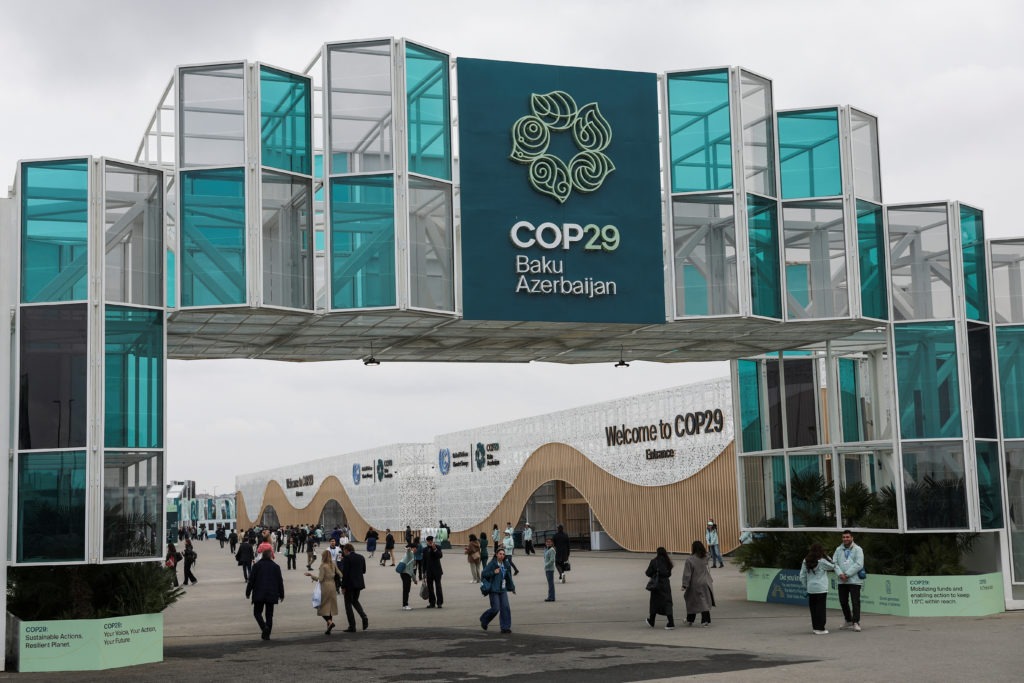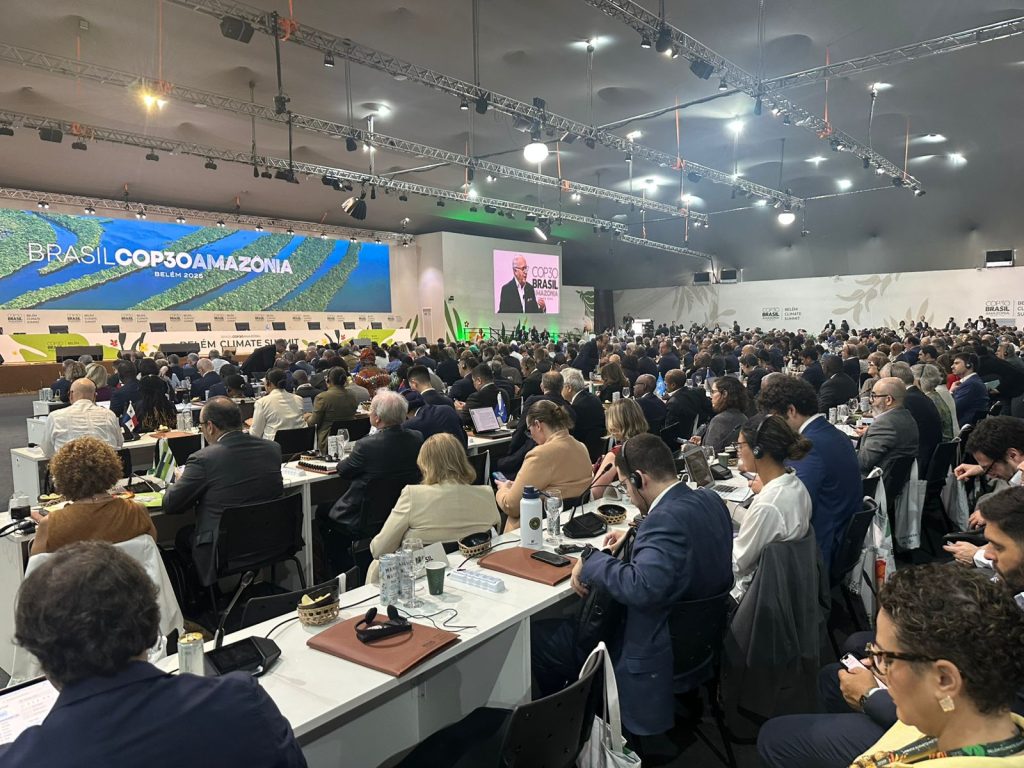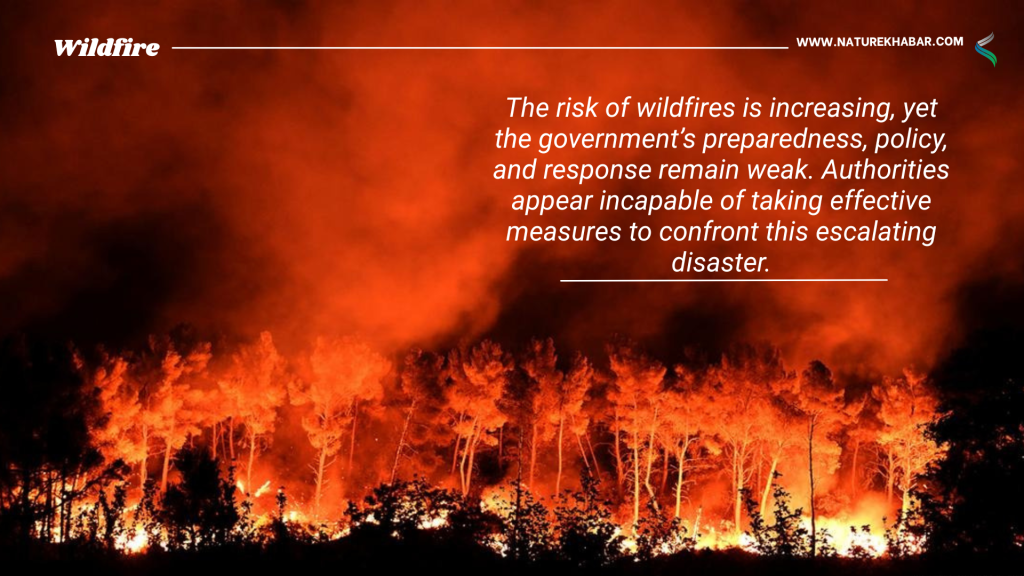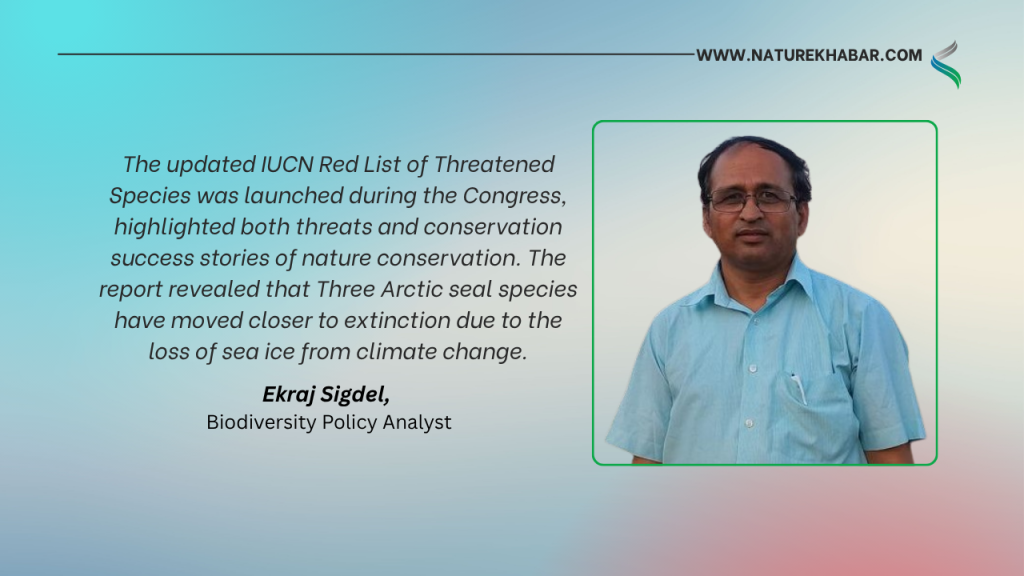Are Nepal’s 7 Forest Ministry Joint-Secretaries Working-or Just Touring Baku ?
- Nature Khabar

Kathmandu - The United Nations Framework Convention on Climate Change (COP 29) began in Baku, Azerbaijan, on Monday, with a duration of twelve days. Nepal is represented by a team of 40 people: nine delegates led by President Ram Chandra Poudel and 31 delegates led by Minister of Forests and Environment Ain Bahadur Shahi Thakuri. The Commission for the Investigation of Abuse of Authority (CIAA) had earlier questioned why such a large delegation was necessary, pointing out that only three people would have sufficed for this conference.
Among the large team led by Minister Shahi are seven joint-secretaries from the Ministry of Forests and Environment, who lead significant departments, divisions, and units within the ministry. This has raised questions about what specific roles they are fulfilling in Baku and whether their attendance was essential.
In addition to Minister Shahi and Secretary Dr. Deepak Kumar Kharal, the seven joint-secretaries and numerous under secretaries and officers from the ministry are currently in Baku. The presence of these officials at COP 29 has sparked public curiosity regarding their activities and responsibilities.
Of the seven joint-secretaries, Sindhunath Dhungana, Head of the Climate Change Management Division, is Nepal’s focal person on climate change, participating in all aspects of the UN processes. Another joint-secretary, Dr. Maheshwar Dhakal, is a board member of the Loss and Damage issue, a topic of major focus at this COP due to its relevance for financial resources and procedural discussions—issues Nepal has prioritized.
However, when Nature Khabar asked sources on the ground about the other Joint-secretaries’ contributions, it was reported, “No clear responsibilities have been assigned to the remaining under-secretaries, and no one seems to know their whereabouts. Whether they are at the conference or sightseeing, it’s hard to tell,” a source said.
One ministry employee attending COP mentioned that no specific roles had been assigned to the other delegates, including joint-secretaries. “Not even the joint-secretaries have visible roles or responsibilities here. What about the rest of us?” an attendee commented to Nature Khabar, noting that most delegates are either sightseeing or participating in occasional side events.
The employee further explained that although some side events and private meetings take place daily, they are neither essential nor possible for everyone to attend. These events often promote international organizations’ agendas or products and aren’t of significant importance to Nepal. According to this source, out of the seven joint-secretaries, only two are actively involved in meaningful tasks, while the other five seem to lack any substantial roles.
 Despite this, these joint-secretaries left their crucial duties behind to participate in a twelve-day conference in Baku. Forest and Environment Ministry spokesperson Badri Raj Dhungana acknowledged to the media that Nepal’s delegation size seems disproportionately large. He pointed out that even participants from wealthier countries seldom attend with such large delegations, and the lack of thorough preparation by Nepal is evident.
Despite this, these joint-secretaries left their crucial duties behind to participate in a twelve-day conference in Baku. Forest and Environment Ministry spokesperson Badri Raj Dhungana acknowledged to the media that Nepal’s delegation size seems disproportionately large. He pointed out that even participants from wealthier countries seldom attend with such large delegations, and the lack of thorough preparation by Nepal is evident.
“There are people waiting around, hoping someone will nominate them for such trips,” Dhungana stated, adding, “Unlike us, other countries carefully select who goes. For us, it’s anyone and everyone who wants to attend, with last-minute confusion over who will sponsor whose tickets.”
Did it really require the President, Minister, Secretary, and seven joint-secretaries to attend the same conference? Nature Khabar posed this question to a former Forest Secretary, who said, “This isn’t about negotiations or discussions; it’s just a desire for allowances and foreign travel. It’s been the same for years, and we haven’t managed to stop it. This practice continues as an easy way for officials to enjoy attractive allowances, travel, hotel stays, and vacations under the guise of conference participation.”
He also recounted a previous COP experience, where a donor organization exerted pressure to ensure the attendance of a specific official, even warning that their cooperation could be at risk if the official did not attend.
According to him, such pressure is common—not only from government officials but also from people in other sectors, driven by political and administrative influence, as well as pressure from donors.
Sindhunath Dhungana, Head of the Climate Change Management Division and Nepal’s focal person for climate change, defended the delegation, saying that the joint-secretaries are engaged in thematic side events and discussions.
This “jumbo team” attending the conference has become controversial. The CIAA has already questioned their trip, sending a letter to the Ministry of Forests asking for justification regarding the necessity and responsibility of each delegate attending COP 29. This letter reached Secretary Dr. Kharal last Monday.
Apart from the mentioned officials, other employees from the Ministry of Forests attending COP 29 include under Secretary of Law Mahendra Shahi, under Secretary of Accounts Deepak Adhikari, under Secretary of Administration Shobhakhar Regmi, Section Officers Ganga Pandey, Khem Kafle, Narayan Rayamajhi, under Secretaries from the Climate Change Division Naresh Sharma, Raju Sapkota, Shiv Khanal, Suman Subedi, Hari Sharma, Prakash Thapa, and Deepa Wali, as well as Technical Officers Himal Sivakoti, Sheela Gyawali, Prakash Lamichhane, Narayan Pokharel, Amrit Sharma, and Law Officer Janakraj Shahi.





Feedback